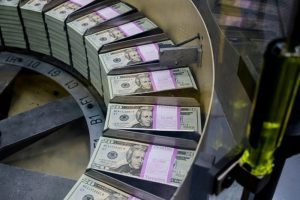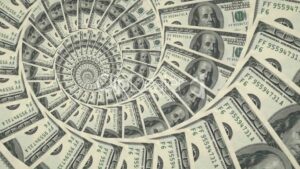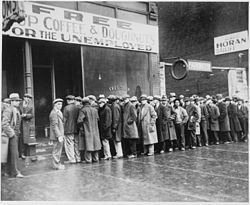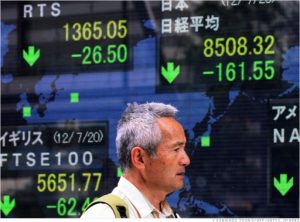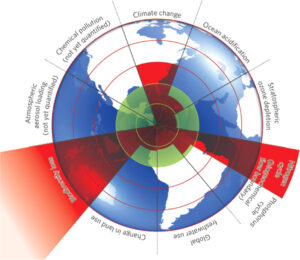INtroDUCTORY MaCROeconomics
Macroeconomics takes a system-view of the economy. If microeconomics is looking at the individual trees, macroeconomics is looking at the forest. This subject looks at macroeconomics from an explicitly Post-Keynesian perspective. As such, it recognises the importance of fundamental uncertainty, the significance of a monetary economy, realism of assumptions, historical path-dependence, political power and much more. In particular, Post Keynesians usually reject the dogma that macroeconomics is really just aggregated microeconomics given issues such as emergence and downward reconstitutive causation from the macroeconomic level to the microeconomic level.
Design: This subject is taught in ‘flipped classroom’ mode whereby you first view an online lecture at a time convenient to you, then undertake some suggested reading and then participate via zoom or in-person in a weekly 90 minute tutorial zoom discussion (with a short break at the 45 minute mark). Tutorial sizes have a maximum upper limit of 19 people (and in practice are typically less) in order to generate a conversational, easy-going and genuinely interactive experience. The lectures and readings are all downloadable and may be done whenever you like. The lectures can either be viewed, or simply listened to as podcasts. On-one-one help is provided whenever you need to clarify anything.
Dates and times
SPE105 will run in Term 1 2025 which starts Mon 27th of Jan with classes to be schedule in the first part of that week. Register an expression of interest to be notified when enrolments open.
Cost (major currencies are listed below, contact us for costs in other currencies)
Australian Dollars AUD$250 (waged), AUD$200 (unwaged).
US Dollars US$170 (waged) US$130 (unwaged)
Euros EUR160 (waged) EUR130 (unwaged)
UK Pounds GBP140 (waged) GBP110 (unwaged)
Payment can be made via electronic funds transfer, credit card, paypal or money order.
Refunds: If you attend the first class and find that for some reason it is not what you are seeking then we can provide you with a (no questions asked) full refund – provided that we are notified within 7 days of your payment.
Assessment: There are regular questions and answers to allow you to self-test your knowledge, but the results of such self-tests are only available to you. Tutorial discussions are also a great opportunity to test and clarify your ideas. You can also get one-on-one assistance via email, phone or zoom when you need to confirm or clarify any aspect of the course.
Accreditation: If you attend at least 7 of the 10 classes, we can issue you with a record of completion which you are welcome to list on your CV.
Week 1. the Post Keynesian approach
Here the focus is on providing an overview of the Post Keynesian approach, including its distinctive ontological and epistemological commitments. We will look at different strands of Post-Keynesian thought as the continuities and disagreements between those strands.
Week 2. Post Keynesian microeconomics
In this week we review and build upon content from SPE103 Microeconomics. As usual, the lecture and discussion will be descriptive, augmented by a few diagrams. However, for those wanting (or needing) to translate some of these ideas into mathematical form, extra learning resources and one-on-one support will be provided. The key argument is that macroeconomics is a distinct level of reality with its own properties and causal relationships, which in turn means we should eschew the idea that all macroeconomics is ultimately just so much microeconomics.
Week 3. Firms
Much (but by no means all) production of goods and services occurs within firms. Accordingly, we need to know why firms exist and what sorts of things govern their production and pricing decisions. Much macroeconomic policy is ultimately driven by assumptions about firms and how they will respond to particular economic environments, including policy settings in particular. Given this, we will examine how Post Keynesians understand firm behaviour and the policy implications that flow from this.
Week 4. Credit, money and central banks Part one
One of the most distinctive differences between Post-Keynesian and orthodox economics is in the area of money and banking. Accordingly, we spend two weeks building, from the ground up, monetary production economy. As is regularly the case with macroeconomics, some aspects may seem counterintuitive at first, yet a good case can be made that Post Keynesians have developed a coherent, realistic, and illuminating means to understand the financial system and its interaction with the real economy.
Week 6. Effective demand and employment
In contrast to the supply-side focus that is, to a greater or lesser extent, prevalent in much orthodox theory, Post-Keynesians stress the short- and long-term importance of effective demand (i.e., the degree to which people across the economy are both willing and able to purchase goods and services). The level of effective demand is a crucial variable in regard to both economic output and employment. In this week we focus on effective demand, noting different ways of understanding it within Post Keynesian theory.
Week 7. Economic Growth
Here the focus is on explaining the long-term growth of the economy which necessarily put our focus on investment, capital-accumulation, technology and learning. Post-keynesians (and also institutionalists) have important things to say about the nature of economic growth and what influences it.
Week 8. open economy macroeconomics
Much initial macroeconomic instruction focuses on an isolated national economy. However, in a highly globalised world we obviously have to account for the flow of goods, services, and technology across national borders. Accordingly, we will spend this week on the international economics.
Week 9. inflation and deflation
A central variable in much macroeconomic policy making is inflation and there is often much debate about what is driving episodes of inflation, in particular, what constitutes an acceptable level of inflation, and what should be done to try and get the economy to sit at the accepted level. Working from the foundation stone that inflation is, ultimately, a conflict about the proper distribution of income in society, we look at the different ways inflation can play out and the suite of options to manage it.
Week 10. key macroeconomic challenges of the 21st century
Using the accumulated knowledge from previous weeks, we seek to develop viable and desirable policy responses to three key 21st century challenges: climate change, environmental sustainability and social and economic inequality. The subject finishes with a survey of where and how people can continue to develop their economic knowledge, including their macroeconomic knowledge.





